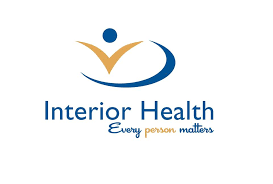How to Handle Stressors More Effectively
The fall typically starts out with many more stressors to manage. Some of you are getting back to work after a summer holiday, others are having to find places for your children to be during the day, while several of you are re-starting exercise classes, meetings or social events. So, not only are there increased time and financial stressors, but, the weather is cooler and the days are getting shorter.
All of this certainly complicates life greatly and puts a much bigger load on the adrenal glands to cope effectively, so, it is important that they are strong enough to adapt to ensure the added stressors of an increased workload, more activities, lower light and temperature are managed well. It is common to see patients wanting more energy, sleep and being more susceptible to colds and mood swings at this time of year.
So, if you have noticed that you’re not sleeping very well, have increased irritability, mood swings or frustration, are having a hard time coping or feeling down more often and just don’t have the energy you want or have a lack of drive or motivation to do the things that need to get done, then consider adding support to the adrenals. The adrenal glands (actually above each kidney) are what handle stressors. If they don’t have enough time to recover, the right raw materials or have too many ongoing stressors, they will start to malfunction and become imbalanced.
In an article on hormonal function, I noted the importance of strong adrenal glands, because, if the adrenal glands are weak, they will solicit the thyroid to help them out, which can compromise the ability of the thyroid to function. This leads to low temperatures and poor metabolism and decreased energy. I often see patients who are told their thyroid is functioning fine (TSH should be between 2-3), but, they are often cold, can’t lose weight or feel like they just don’t have the energy or motivation they need. The root of the problem is often the weak adrenals that force the thyroid to work harder than it should, so, it doesn’t show up as a thyroid problem, because it is really an adrenal issue, even though the symptoms seem to point to thyroid weakness. Therefore, it is extremely important to keep those adrenal glands strong.
The adrenal glands release three main hormones from the cortex. The first group are called glucocorticoids, the main one being cortisol. This is released with any on-going stress, whether it is physical, mental or emotional and helps regulate sugars, but also reduces inflammation and allergic responses. The second main group is the ketosteroids, the main one being DHEA. It converts into our sex hormones- estrogen, progesterone and testosterone. The third group are the mineralcorticoids, the main one being aldosterone. These help regulate the mineral balance, especially sodium and potassium levels. If stress is ongoing or long-lasting, the balance of the hormones is upset and many areas may be affected.
The typical symptoms that tell me there is an adrenal problem are: low blood pressure, feeling dizzy on rising, having problems going or staying asleep, mood swings, (anxiety, nervousness, sadness, poor motivation, frustration) poor energy, frequent colds or flus, poor digestive function (gas, bloating, alternating diarrhea/constipation) and hormonal imbalances (problems with heavy bleeding, skipped cycles, cramping, PMS and night sweats). You can see thyroid and adrenal symptoms are often overlapping because they are so inter-connected.
So, let’s talk about some ideas on how to strengthen and keep the adrenal glands balanced. Firstly, we need to feed the adrenal glands what they need to be strong. The main raw materials are Vitamin C (a non-citrus based Vit C, since we don’t want the body to be too acidic), Vitamin B5 (pantothenic acid), Vitamin B6 (pyrodoxine), zinc, magnesium and potassium. It is critical to maintain potassium levels within the body by eating potassium rich foods such as avocado, sweet potatoes, yams, bananas, fish, chicken, green veggies, dried beans, fresh fruit (especially those with pits) and lamb. Vitamin C can be found in dark fleshed fruit and veggies, like cherries, berries, plums and red peppers, however, it is difficult to keep up with the demands of our lifestyles. Therefore, I often recommend supplementing it, using a neutral source of Vitamin C powder or capsule. (We use tapioca or organic corn as a source.) The B vitamins are the highest in animal proteins such as fish, lamb, buffalo and chicken, but, can also be found in nutritional yeast flakes. These give food a nutty, salty flavour and can be used as a soup base, added to stir-fries or stews or sprinkled on steamed veggies. Zinc is highest in raw nuts and seeds (almonds, sunflower, pumpkin hemp, chia, flax and sesame seeds). Magnesium is highest in whole foods, especially tofu, legumes, seeds, nuts, whole grains and green leafy veggies. Often a high quality multi vitamin/mineral capsule will supply the extra amount needed with a high stress lifestyle, or some of you may need to be supplemented individually, depending on your lifestyle demands.
Secondly, we need to balance our busy schedules with exercise as a stress reducer, a relaxation exercise such as yoga, qi-gong, meditation, stretching or progressive relaxation. If you are taking children to gymnastics, hockey or other sports that you stay for, try & walk outside for at least 45 minutes of their practice. Then you can relax and exercise at the same time!
Thirdly, recovery overnight is essential. We need 7-8 hours of deep sleep to allow the adrenal gland to repair and rejuvenate. Typical situations that I treat often are people who are up 3-4 times per night and may have a hard time going back to sleep or someone who can’t get to sleep, which is common with new mothers and their partners feeding and caring for their children, people drinking too much coffee or tea, menopausal women experiencing night sweats, men having to urinate frequently or those too anxious/worried to get to sleep or stay asleep.
Fourthly, herbs have also been found to help us handle stressors more effectively. I often recommend replacing coffee/tea/pop or any other stimulant, which continually add stress to the adrenal glands, with relaxing and energy building herbal teas. There are many commercially available, such as Tension Tamer, Honey Chamomille, Licorice, Sleepytime and others. Oatstraw and scullcap are often used in formulas. Siberian ginseng has been researched and been found to help restore the adrenal balance.
Fifthly, as alluded to above, we must try and remove anything that is causing on-going stress to the system. The biggest on-going stressor from an intake perspective is any stimulant such as coffee, black tea, green tea, white tea, herbe mate, honeybush, rooibos and pop. Many folks tell me they only drink it in the morning, however, the influence is there 24 hours. The other is refined foods that contain white flour and/or sugar. These stress the pancreas, liver and adrenal glands, because they over-tax the blood sugar balancing system and stimulate an over-production of cortisol. They also deplete the B vitamins and have little potassium or magnesium. As always, moderation is the key!
Therefore, consider the adrenal glands if any of these symptoms seem to ring true, so you can have a good start on the approaching winter to enjoy those winter sports and stay healthy!
If you would like to have a more individualized approach to re-building and balancing those adrenal glands, consider an appointmentwith Dr.Brenda Gill at 250-362-5035.


























